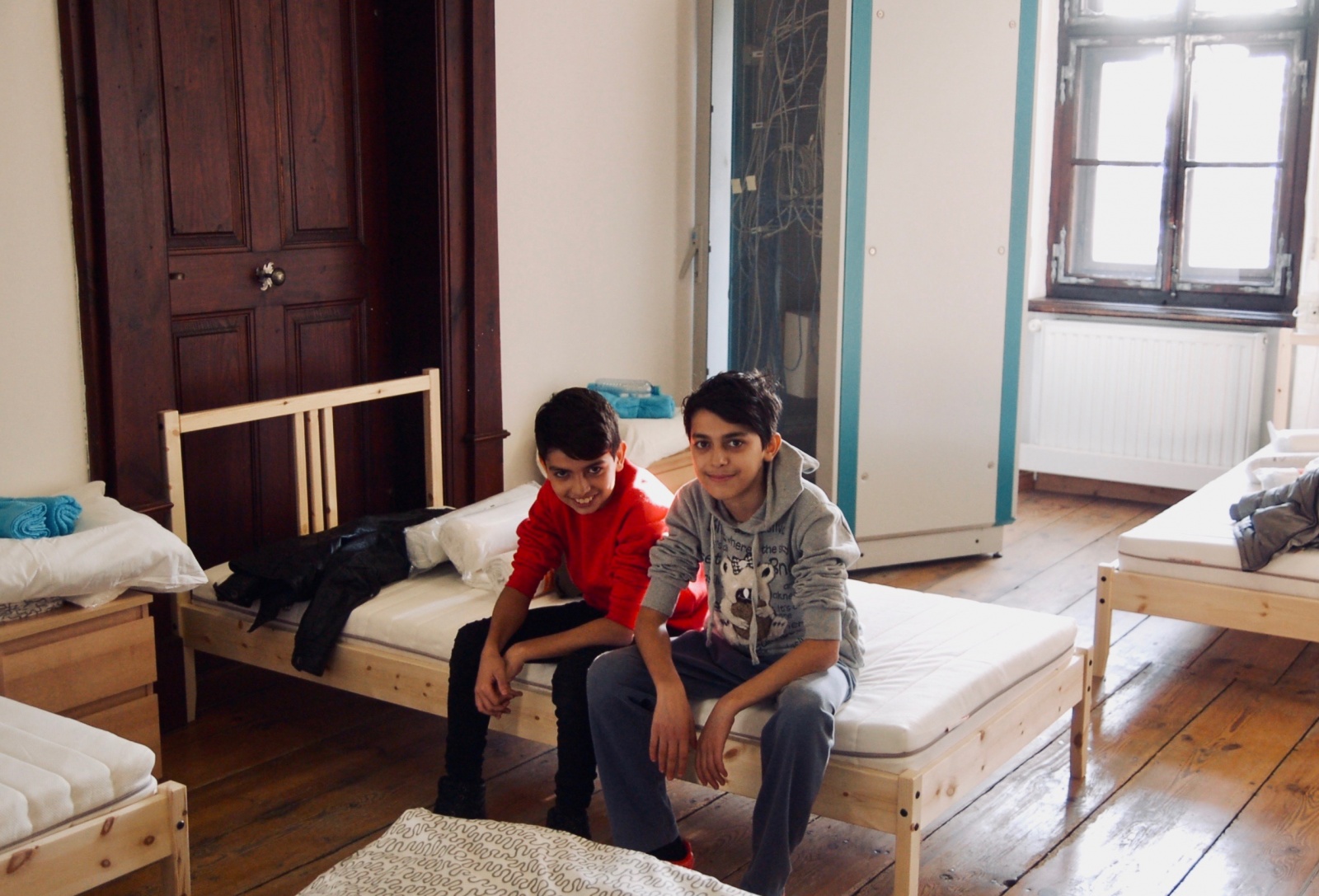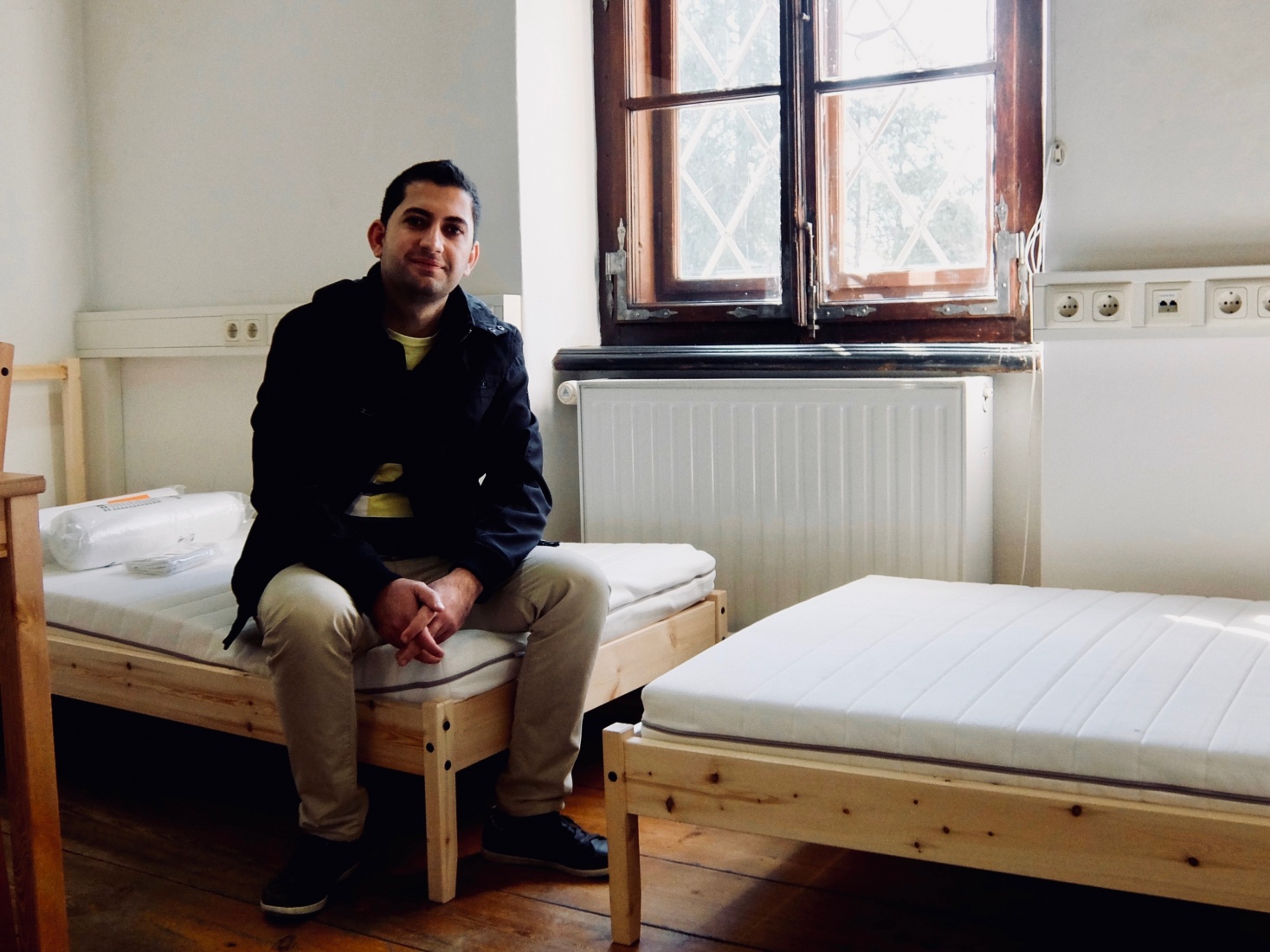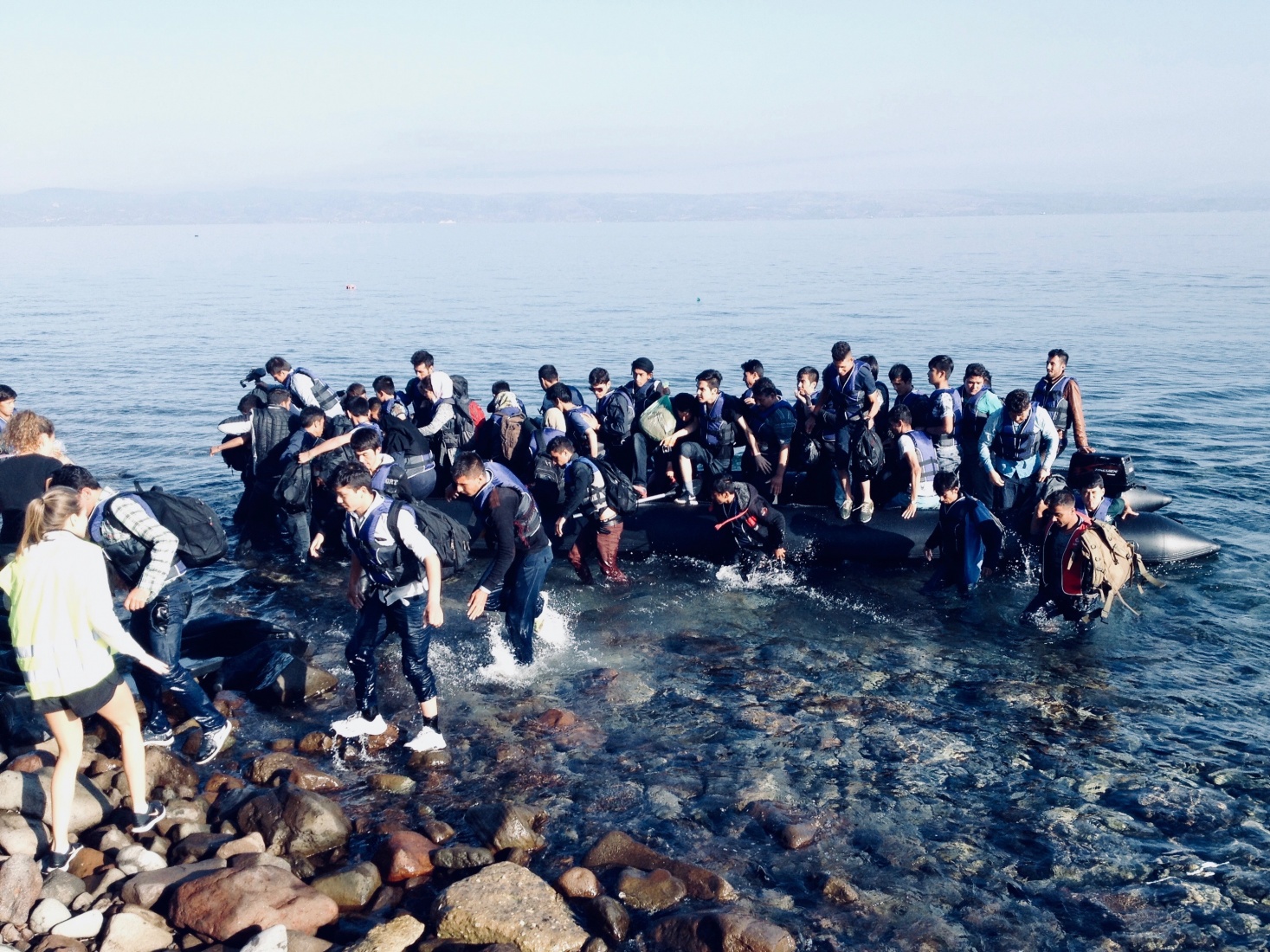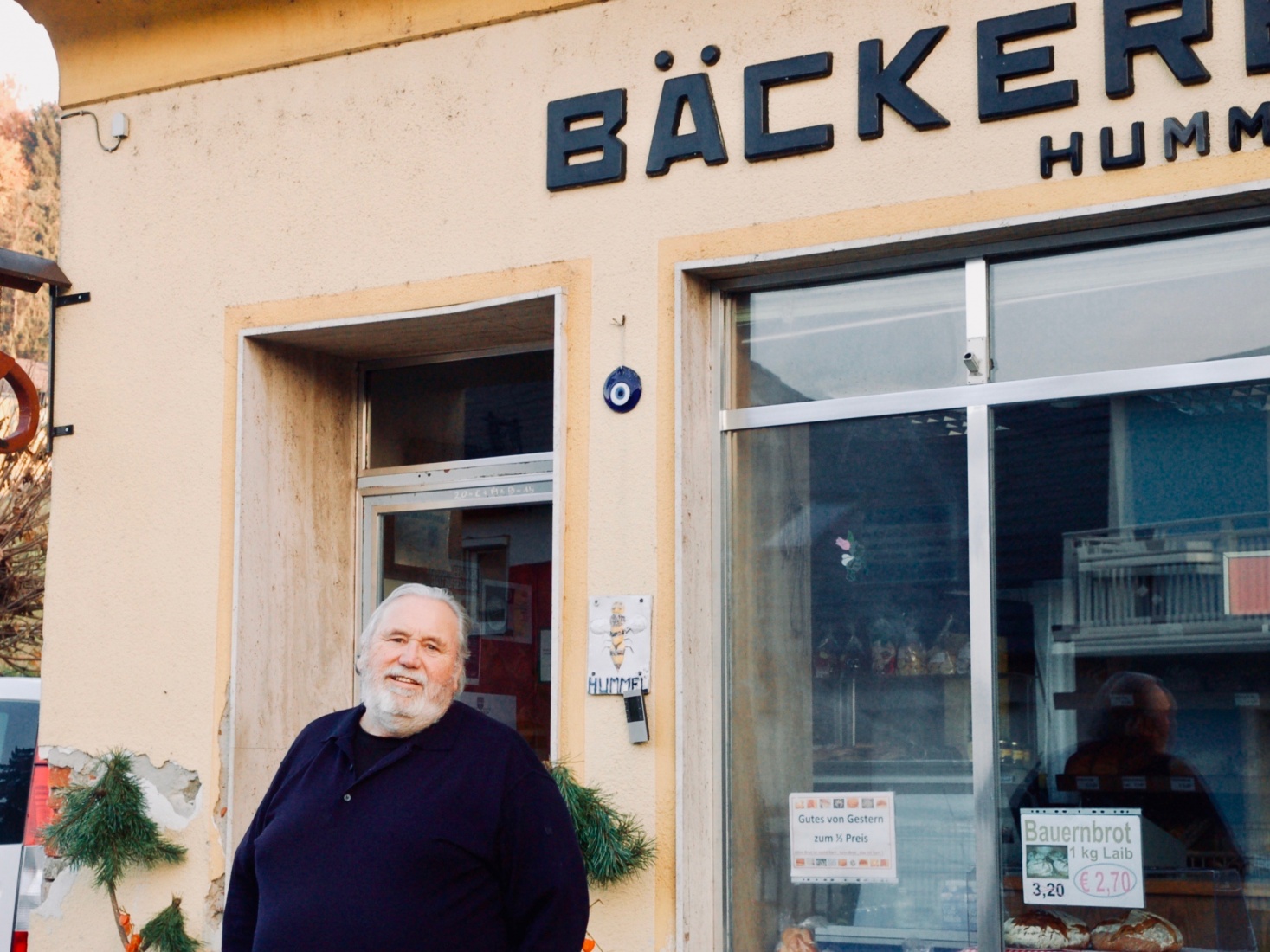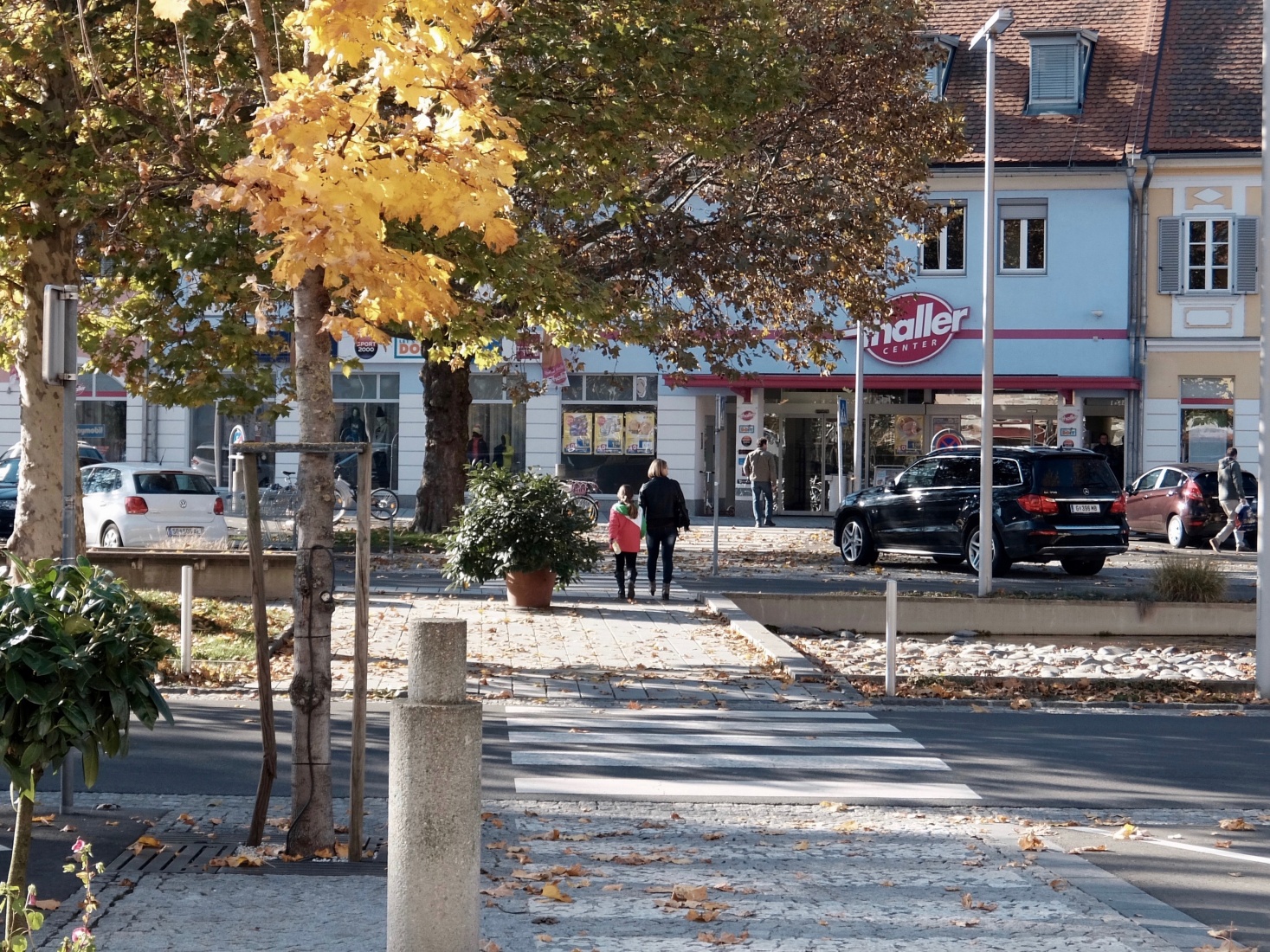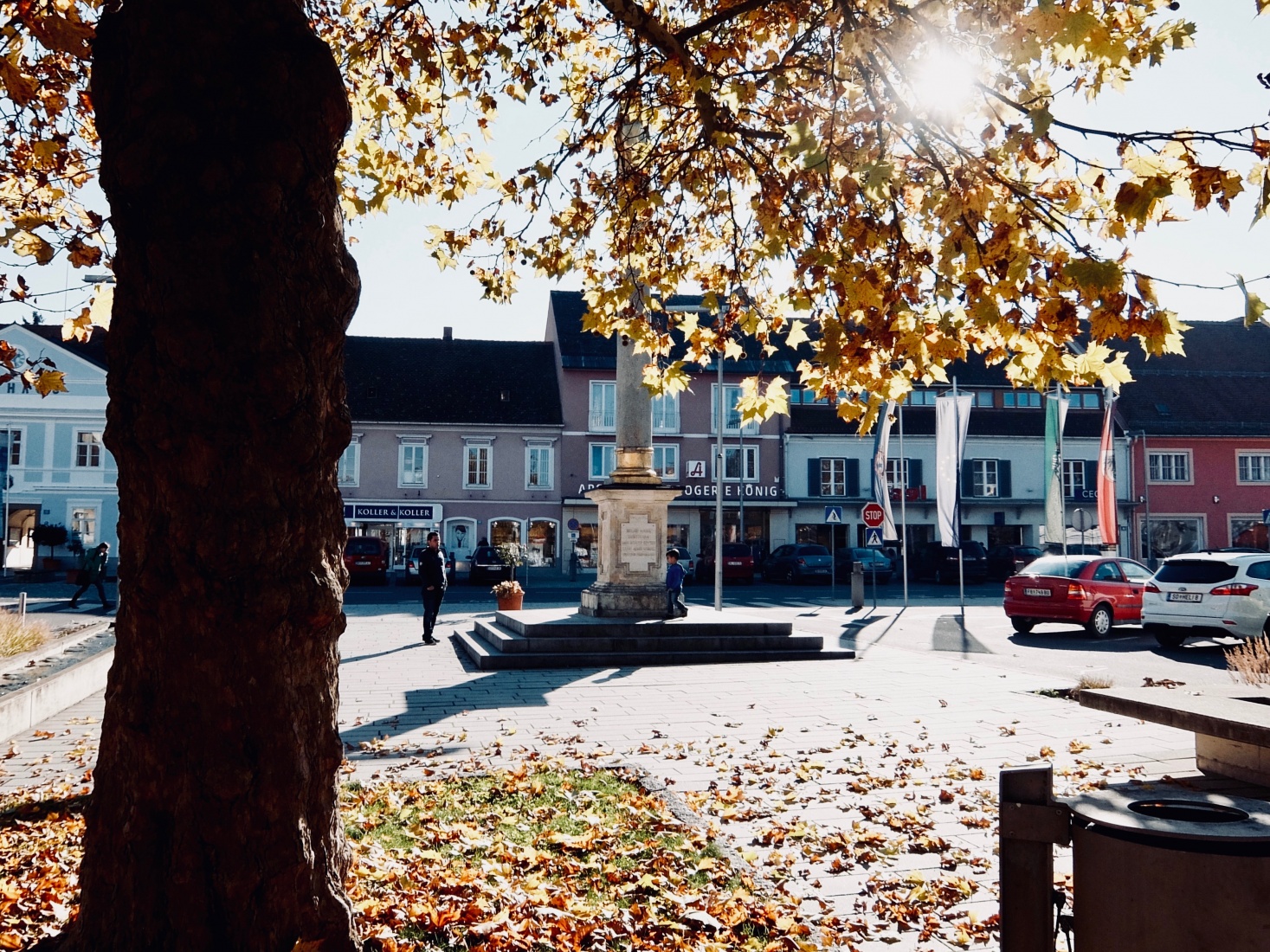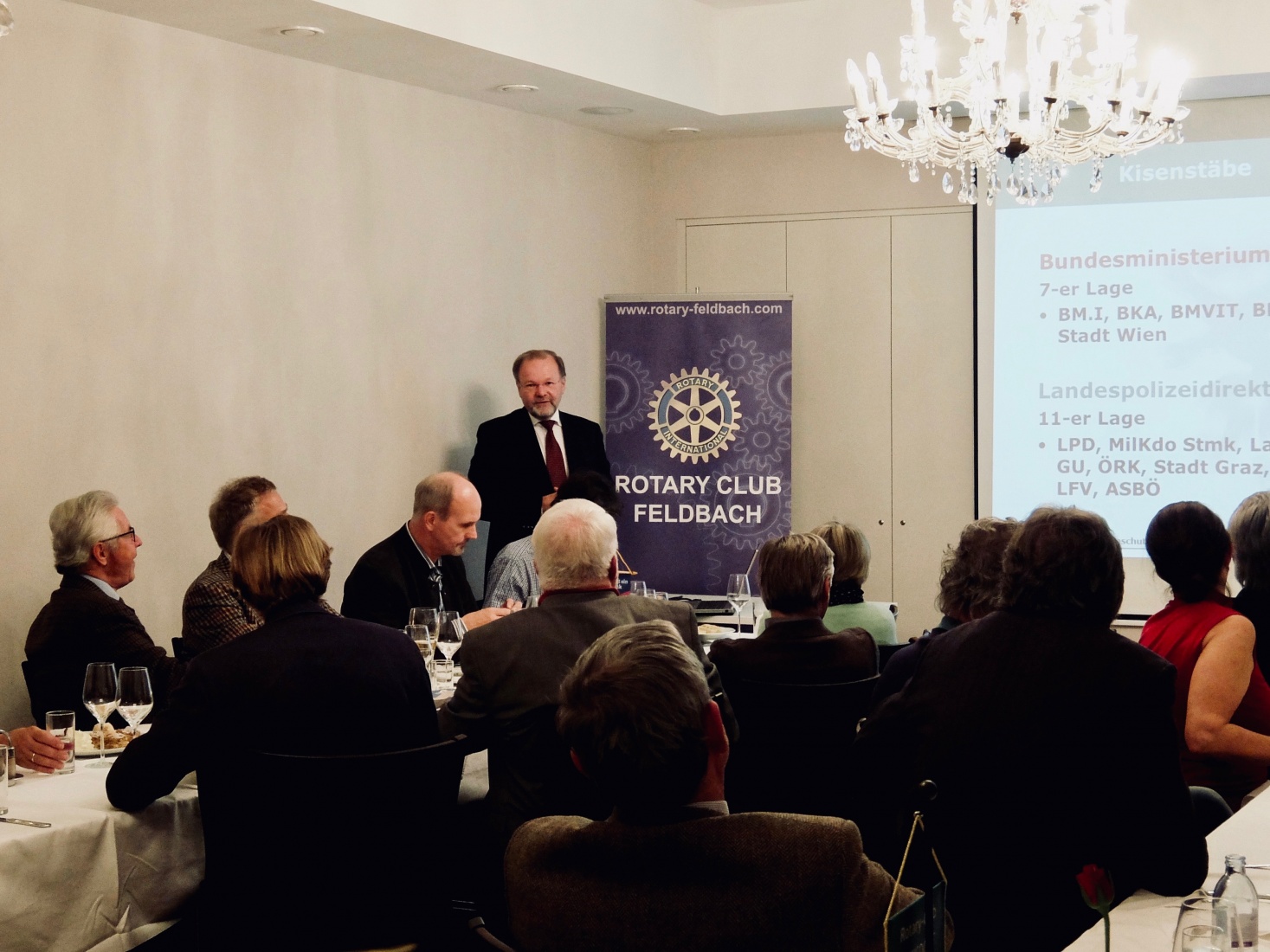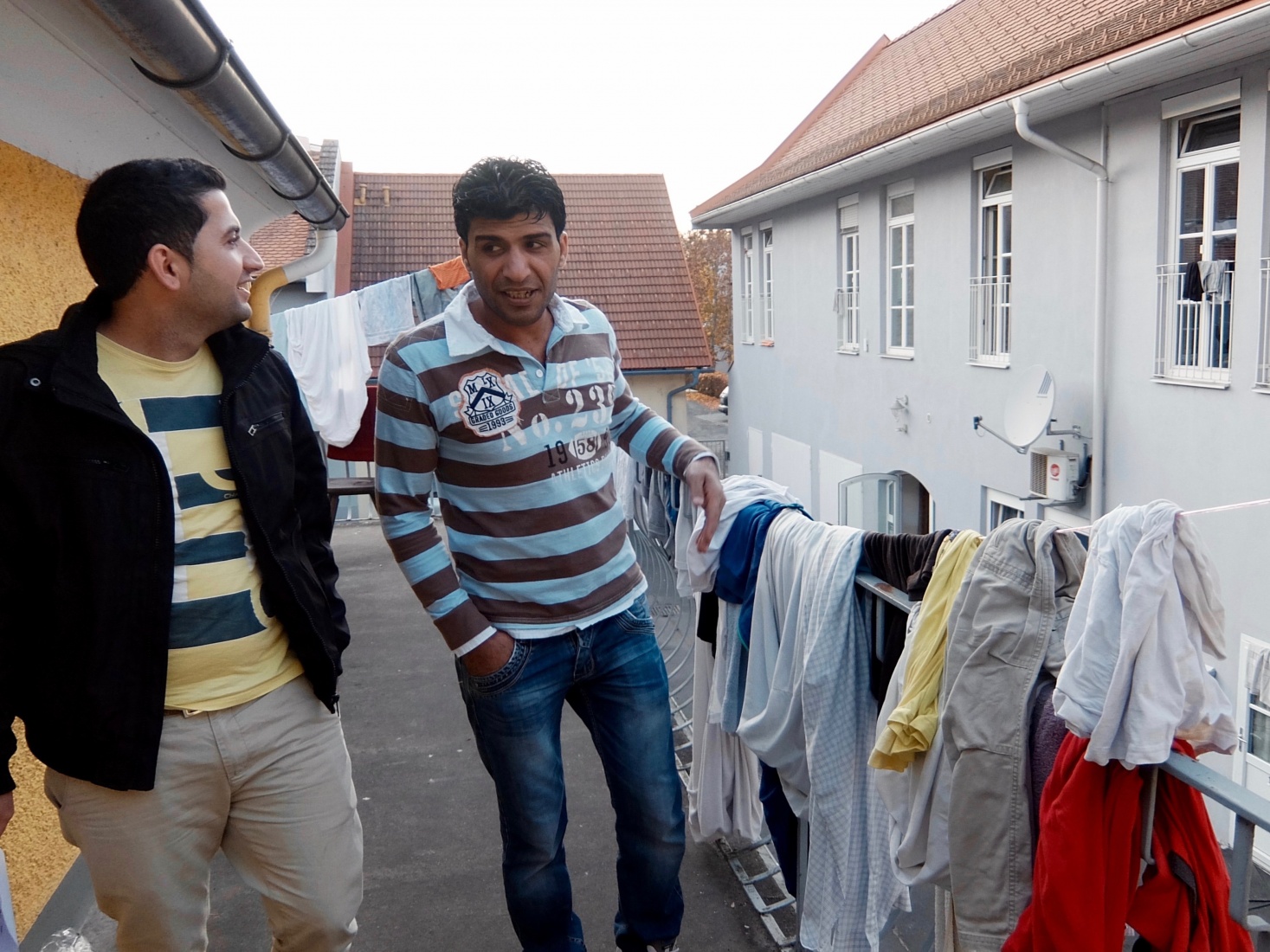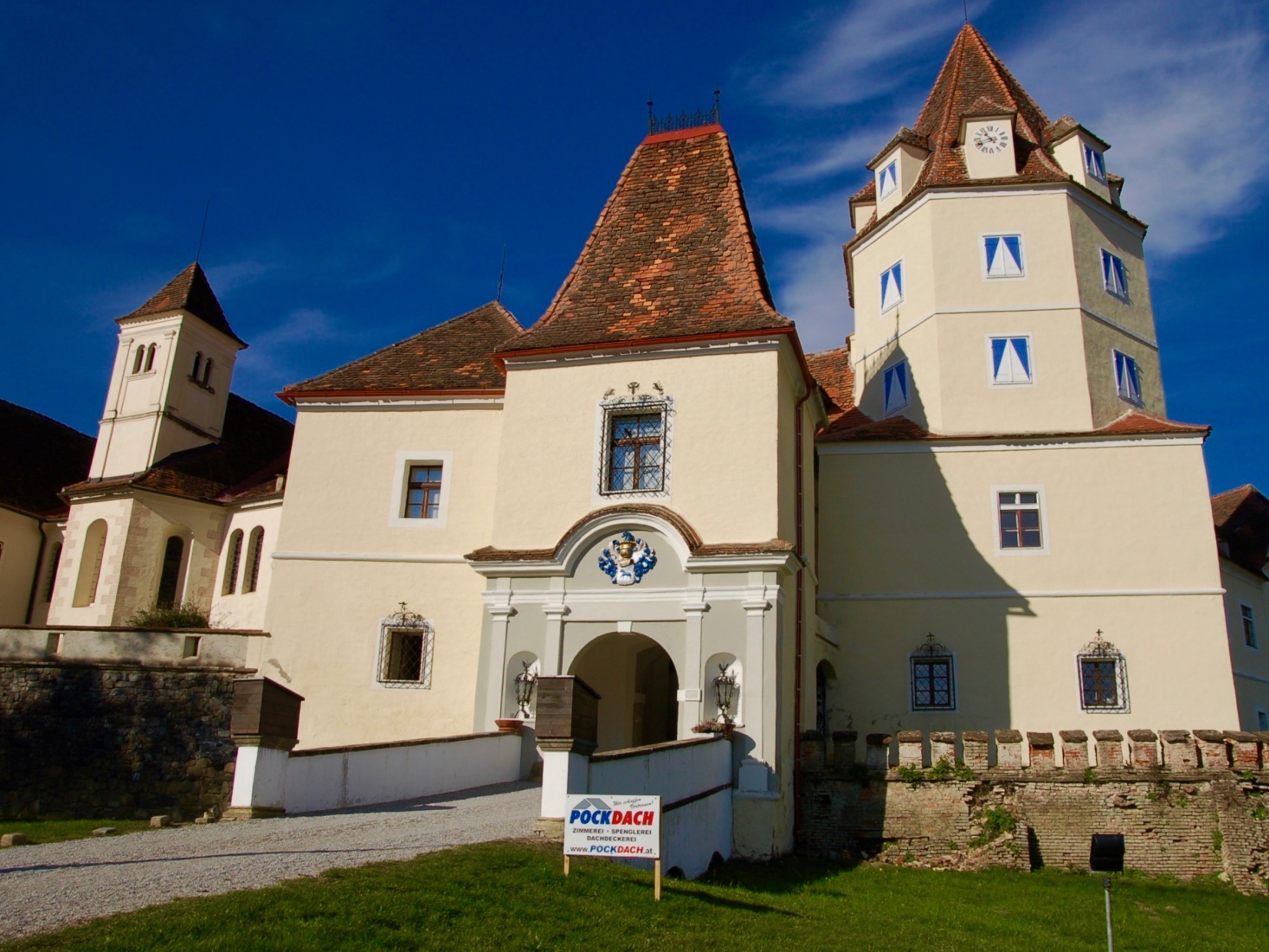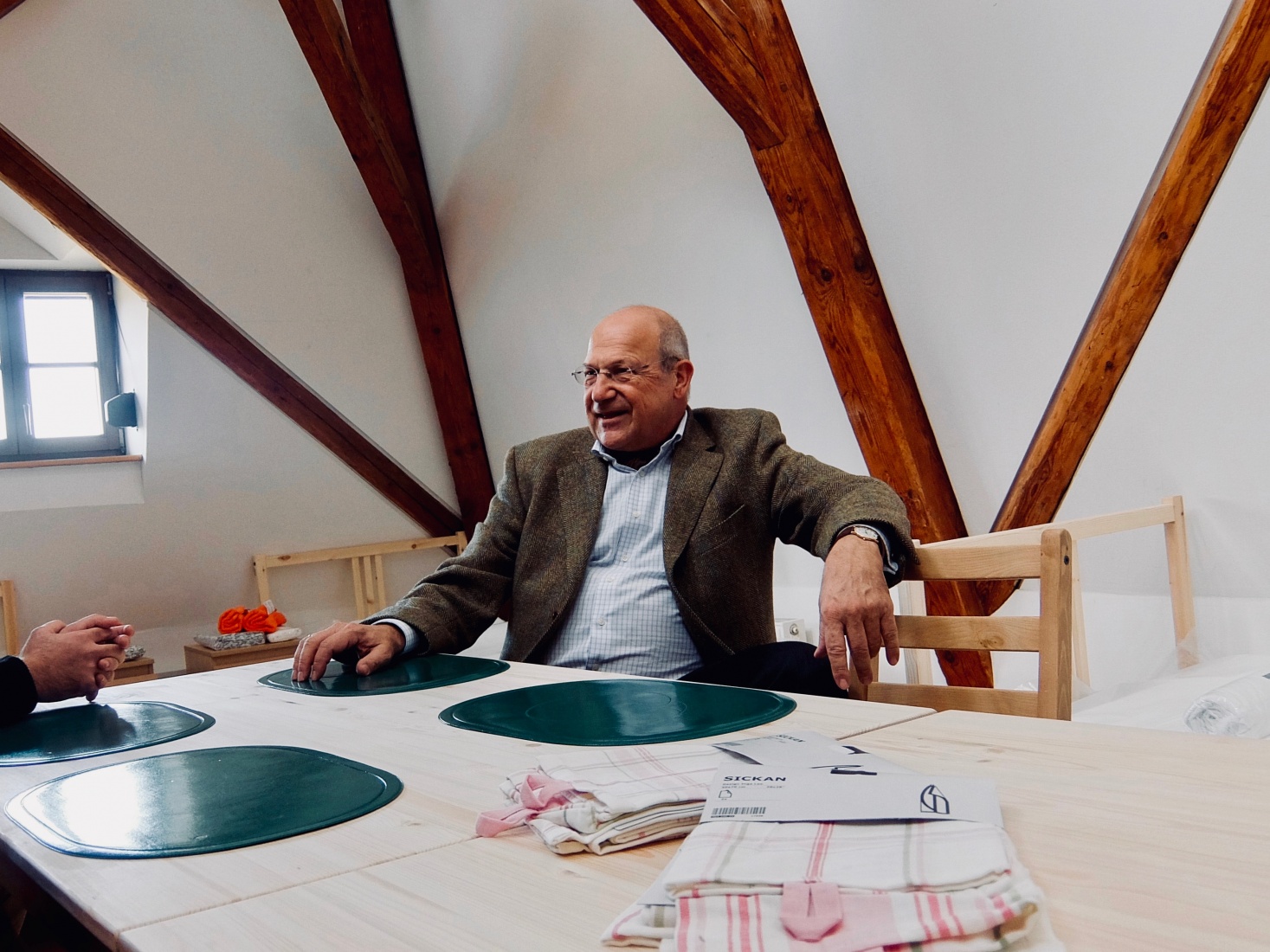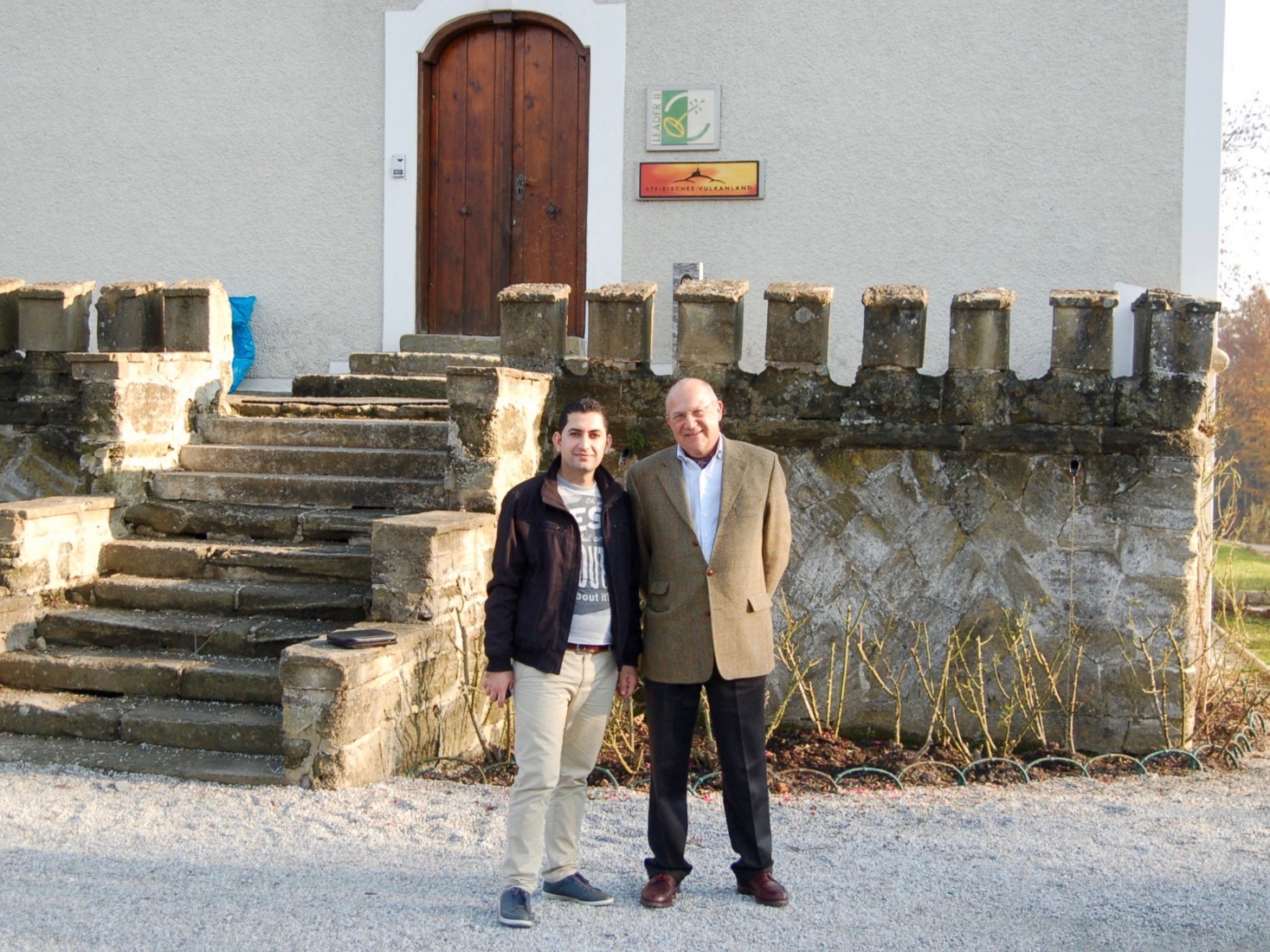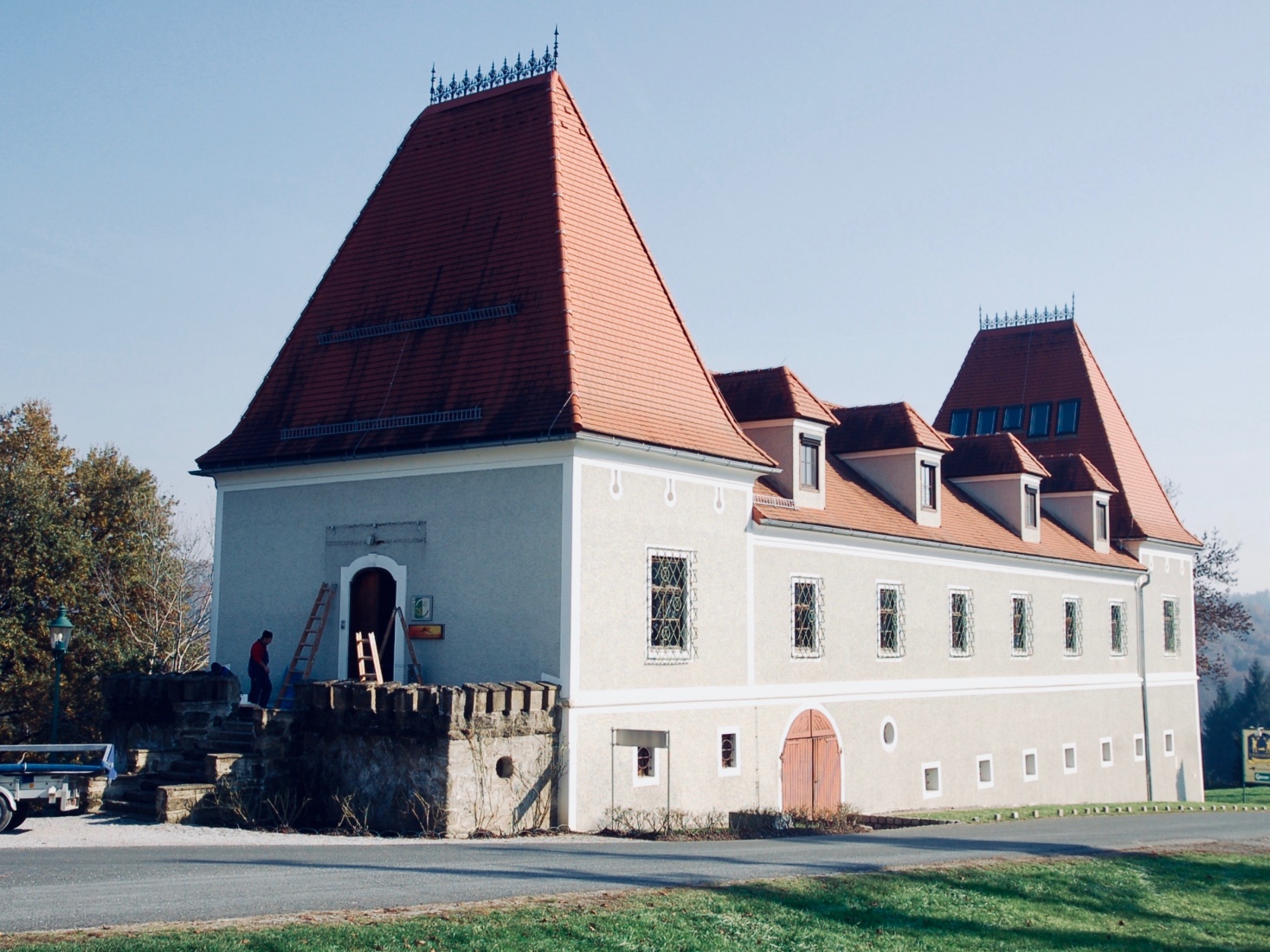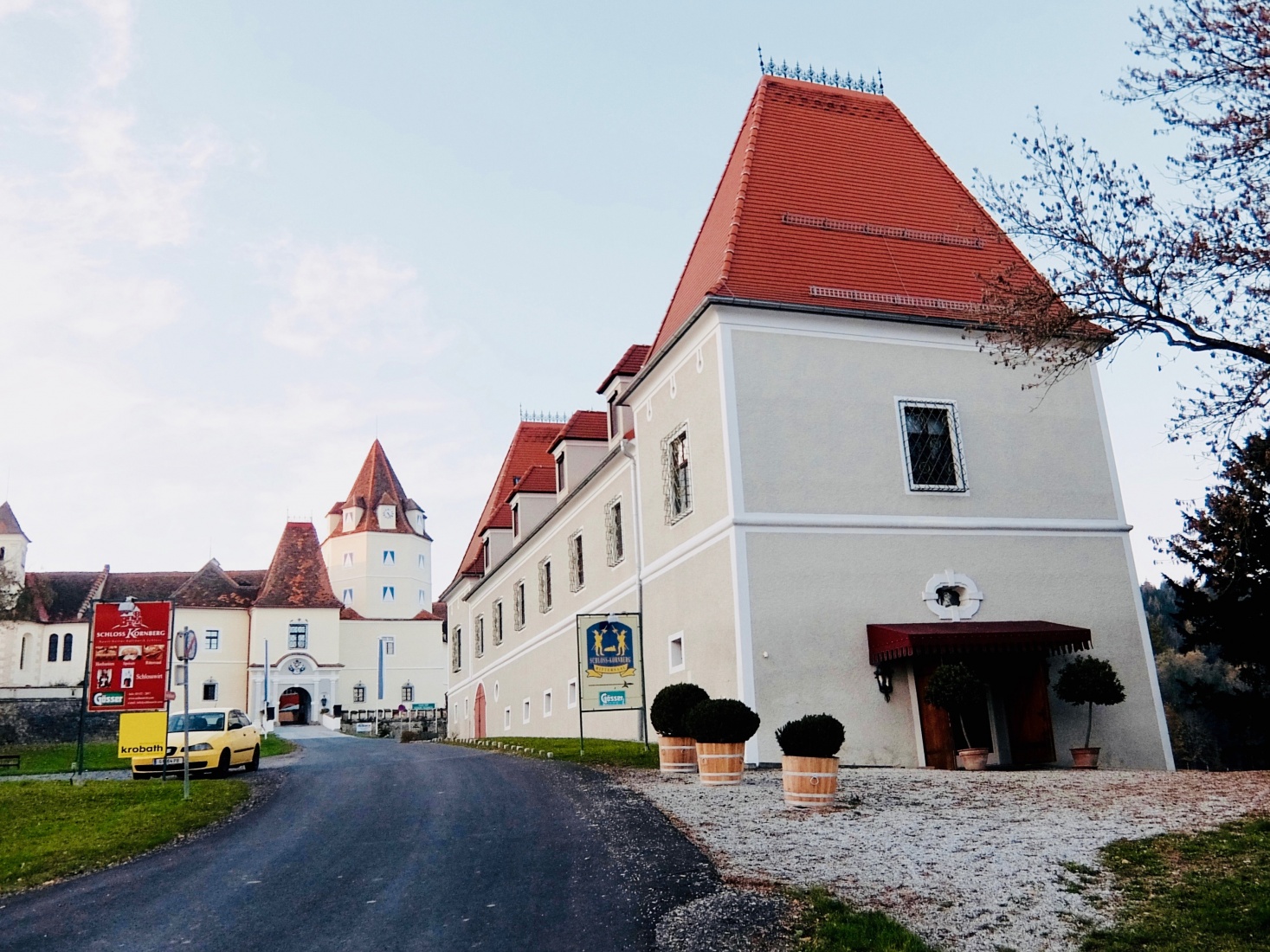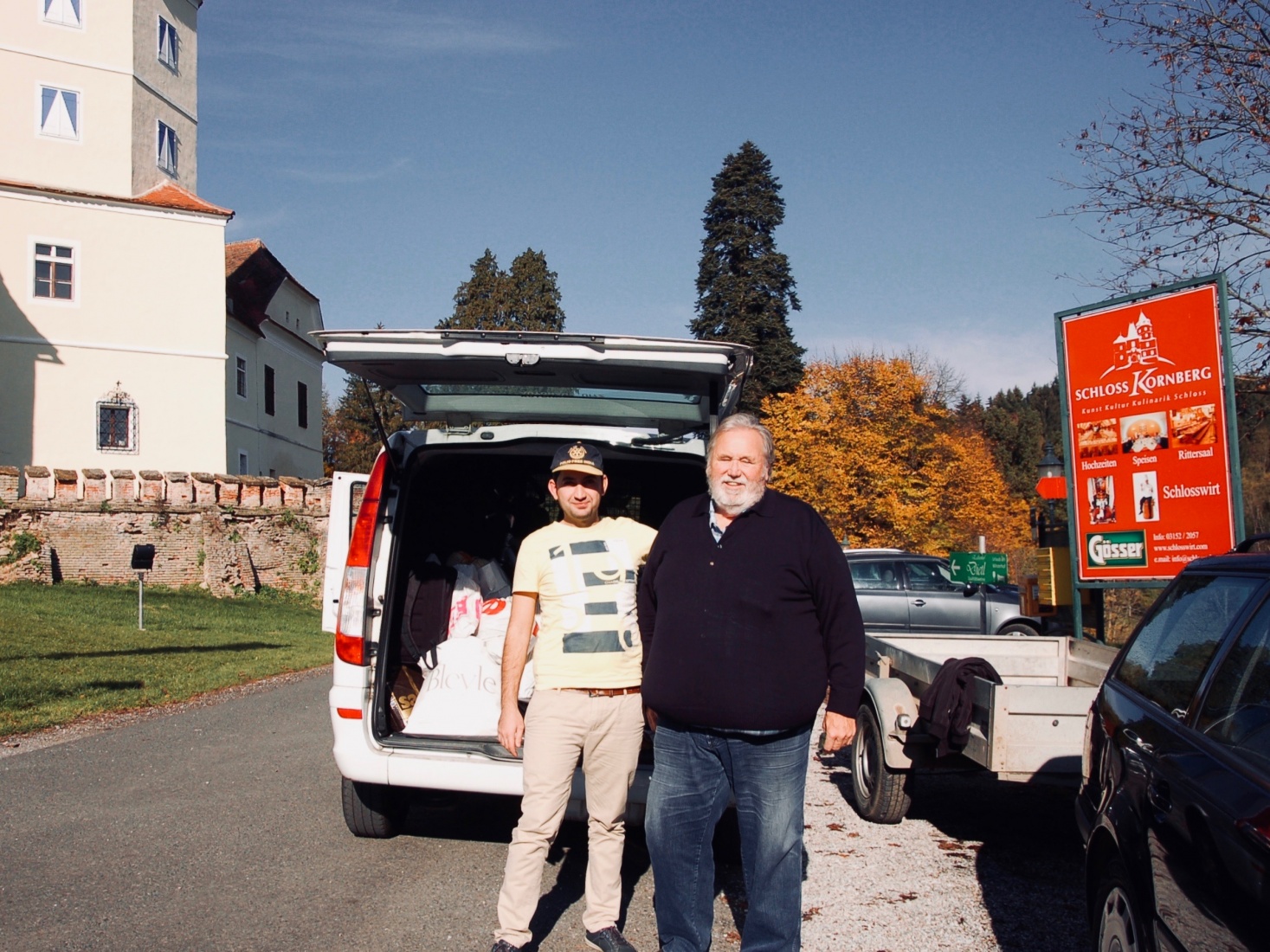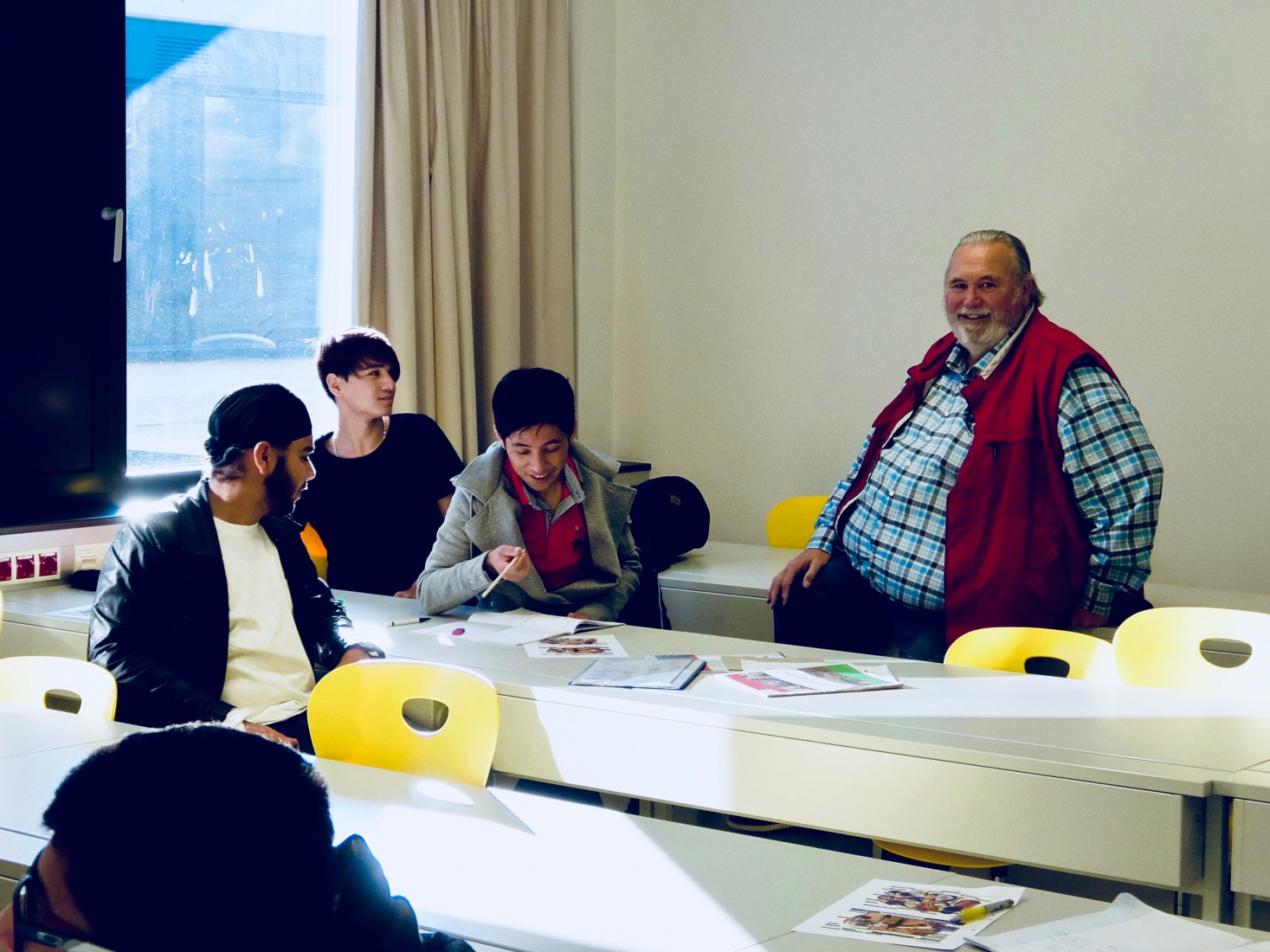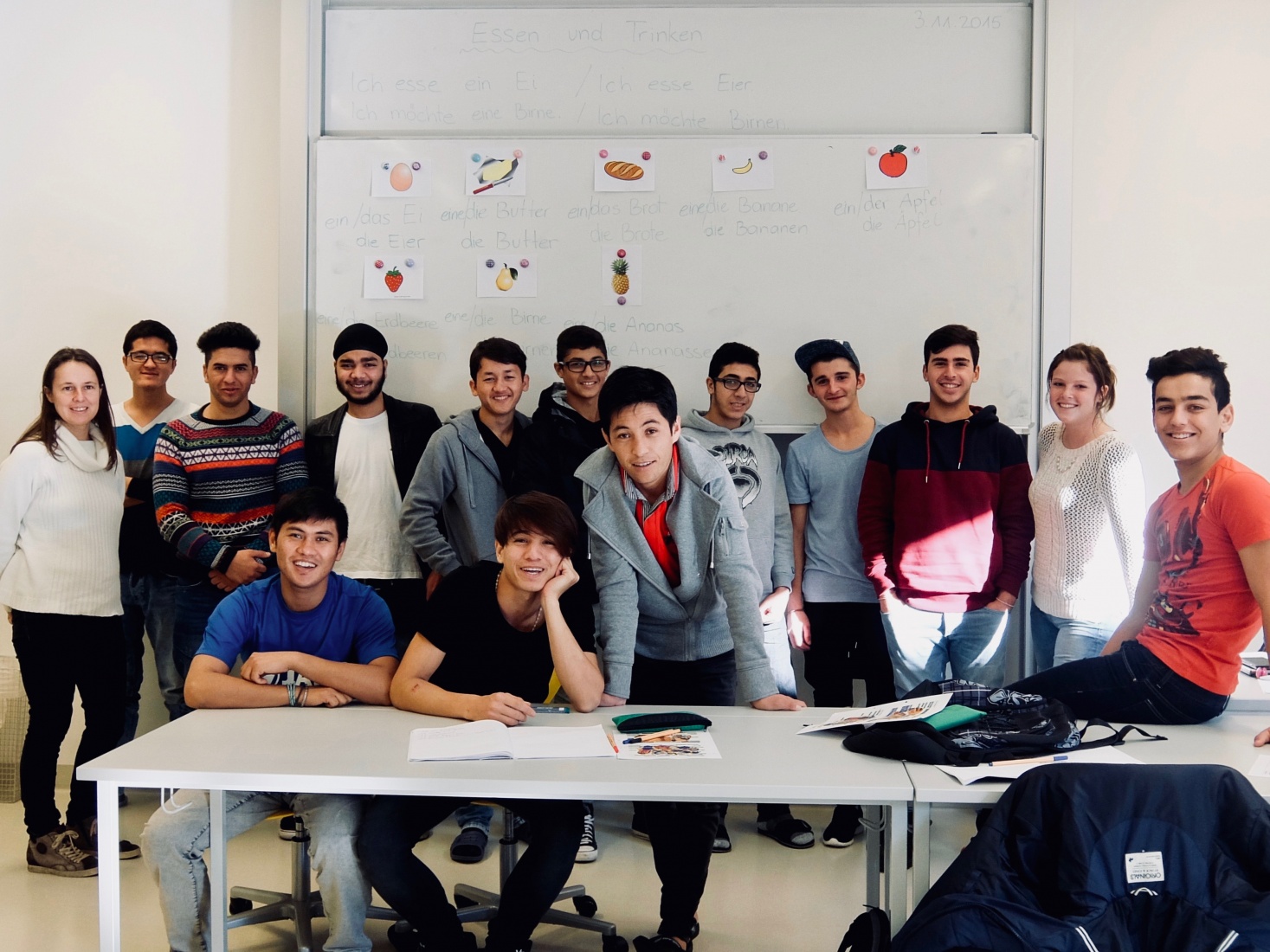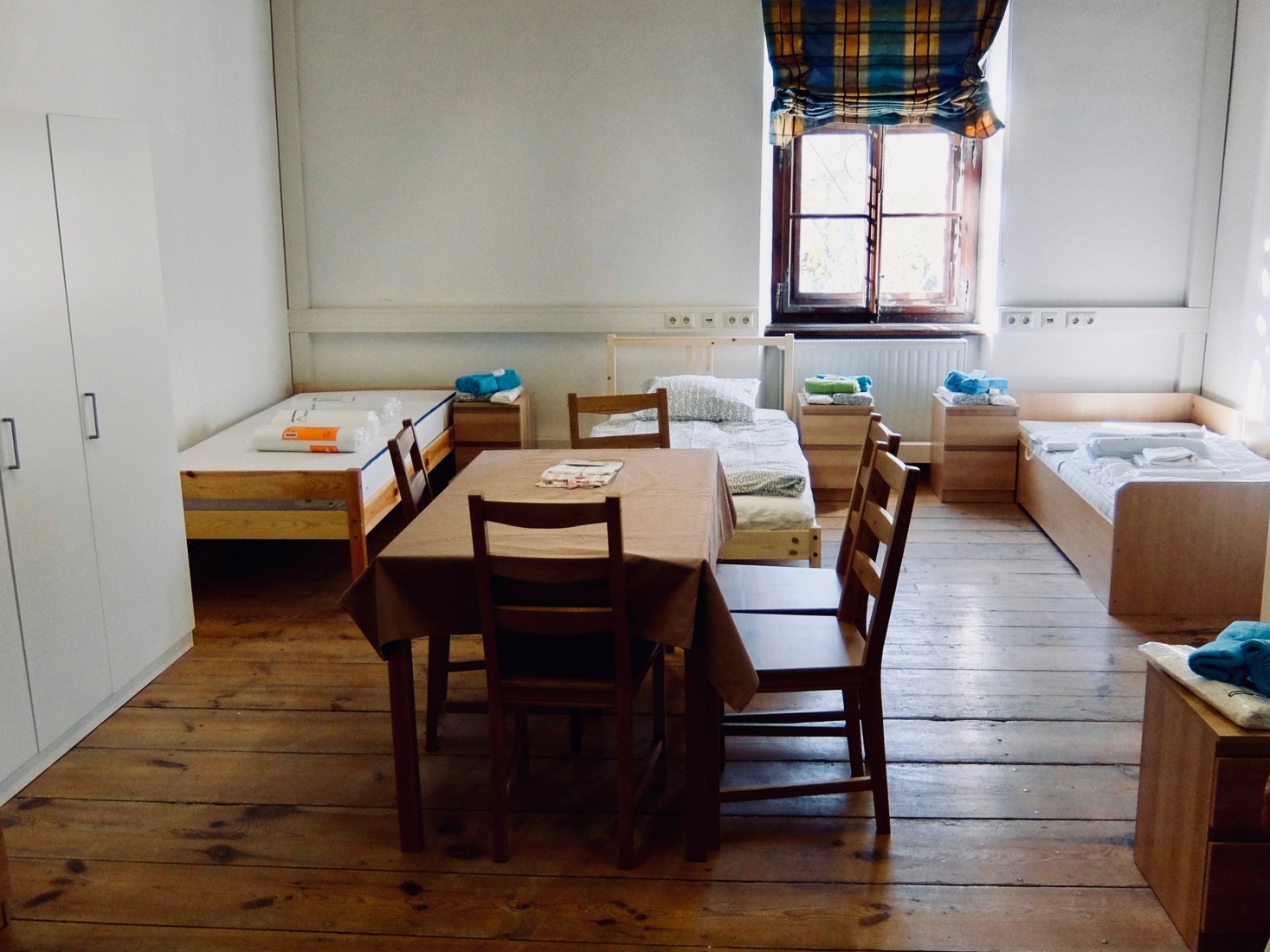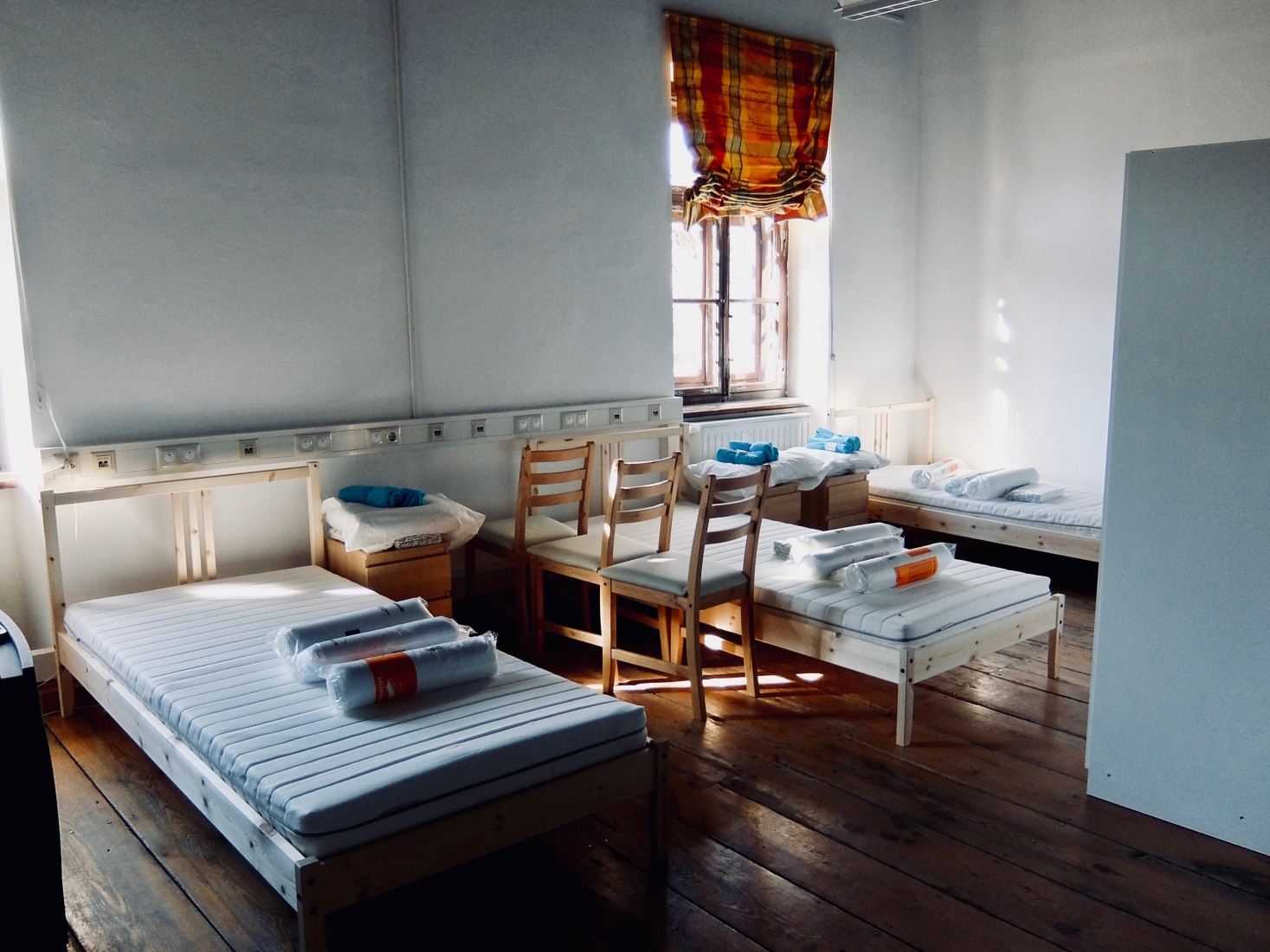More than a million refugees from Syria, Iraq, and Afghanistan streamed into the European Union in 2015. Most entered via Greece after a harrowing raft trip across the Aegean Sea from Turkey. Once there, they made their way north, often on foot, more than a thousand miles through the rugged mountains of the Balkan countries toward Germany.
That was the uncertain odyssey facing Muhammad Malla Hamza, a 26-year-old ethnic Kurd, in late 2014 when he decided to leave his native Syria. The trip would lead the young man to a postcard-perfect village in Austria – and into the arms of the local Rotary Club there that would allow him to begin a new life while helping others in his situation.
I first met up with Muhammad in a cafe in his new hometown of Feldbach, in the southeastern Austrian province of Styria (see map plot, below). The town of 5,000 people, best known for producing white wine and pumpkin-seed oil, is far removed from the chaos of the Middle East. It’s the kind of place where schools and churches are well-scrubbed and bank branches and drugstores are shiny, and where the loudest sounds on the streets are bicycle bells. At the time it was home to around 100 refugees.
Muhammad is, as they say in Austria, sympatisch – in other words immediately likable, with a calm demeanor and an easy smile that only disappears when he speaks about the situation he left behind in Syria. As a recent graduate of Damascus University with a degree in English literature, he explained, he was about to lose his deferment from serving in the army of Syrian dictator Bashar al-Assad and being forced to fight the array of rebel groups, including the Islamic State (ISIS), that were opposed to Assad’s rule. “I did not want to die fighting ISIS,” he said.
Muhammad’s perilous six-month journey from Syria to Austria was relatively routine for refugees making their way from the Middle East to the safety of Europe. He first crossed the Syrian border into Turkey, where human traffickers arranged passage on a nine-foot rubber raft bound for Greece. The tiny vessel was barely fit for the crossing. “It rained so hard that night,” Muhammad said, describing the passage. “It was horrible.”
Once in Greece, Muhammad surrendered to the police and was placed in temporary detention to begin the process of requesting asylum. Here, he said, he learned that many – perhaps most – people in Europe do not want the refugees. “The police treated us like animals,” he said. “They wore masks and touched us with gloves as if we carried disease.”
From Greece, Muhammad set out on a tortuous, nerve-wracking journey northward on foot. It began with a two-week trek through the woods to the Albanian frontier, where he and a small group of fellow refugees befriended a border guard who hid them in an apartment in the capital, Tirana. From Albania, more furtive border crossings by night and plenty of bribes paid to police and hotel receptionists took them through Montenegro, Serbia, Hungary, and finally, to Austria, where they wound up at the sprawling Traiskirchen refugee camp, 20 kms (12 miles) south of Vienna. In Traiskirchen, Muhammad lodged a formal application for Austrian asylum and was eventually reassigned to a shelter near Feldbach.
The final stop of Muhammad’s journey proved particularly fateful, both for him and for the Rotary Club of Feldbach. On his first morning at the shelter, Muhammad wandered into town to get some bread and found himself face-to-face with 68-year-old baker and Rotary Club member Fritz Hummel. The rapport between Muhammad and Hummel was immediate and the two struck up a close friendship. “Fritz Hummel treated me like a son,” Muhammad said. Hummel, for his part, is just as affectionate: “He’s a great kid,” he said.
Hummel describes himself as “not your typical Rotary guy.” Most of the 48 members of the Feldbach Club are doctors or other professionals. Hummel, a Rotarian for more than 20 years, works in a bakery that was founded by his father in 1953 and that is now run by his son. He’s a big man with an obvious appetite for pastry, but with perhaps an even bigger heart. “I traveled to Syria 40 years ago and I was treated very well there,” Hummel said. “Rotary means helping people, and that’s what I wanted to do.”
Before the refugee crisis, the Feldbach Rotarians were best known for sponsoring the town’s annual Christmas concert and raising scholarship money for students, but the connection between Muhammad and Hummel led the club to become more deeply involved in solving Austria’s most pressing social problem in years. The centerpiece of that effort was a program to collect donations of money and household items to help the refugees adjust. “We give them clothes, food, computers, and televisions, as well as used bicycles,” Hummel said. “We also help them to meet with doctors and lawyers from the club.”
The sheer number of refugees – as many as 6,000 a day entering the European Union by late 2015 – spurred a powerful backlash in Austria against the EU’s largely open-door refugee policy. Opinion polls showed that Austrians are deeply divided on the issue of accepting the refugees. A survey by the agency GfK-Austria in October 2015 revealed that 49 percent of Austrians would like to see the inflow slowed or halted entirely through tougher border controls.
Given the amount of apprehension and fear, the Feldbach Rotary Club’s involvement extended beyond providing material goods and services to the more difficult task of trying to educate the general population, according to Rotary Club officer Manfred Krasnitzer. “Rotary members are the town’s opinion-makers,” he said. “When people here have a more realistic idea of what is happening, they can correct their impressions.”
In sketching out a future role for the Feldbach club, Krasnitzer said members need to start thinking further ahead. “This means, first of all, helping the refugees to learn German,” he said. “Then we need to identify skills within the refugee population and to help them to make contacts so that they can find meaningful work.”
The desire to show area residents how to help the new arrivals was the motivating factor behind an ambitious plan to provide temporary housing to refugees in a former hunting lodge on the grounds of a fabulous Renaissance chateau near Feldbach. "Schloss Kornberg" is the family estate of Andreas von Bardeau, a noble count and a member of the Feldbach Rotary Club. (His wife, Anna, is the great-granddaughter of Archduke Franz Ferdinand, heir to the Habsburg throne who was assassinated in Sarajevo in 1914.)
Bardeau is an affable man in his late fifties, with a no-nonsense business attitude softened by a dose of aristocratic charm. “I was brought up in a house where we were taught to think ‘European’ and ‘international,’ ” he said. “I wanted to show people here that the situation is calm.” The Kornberg hunting lodge has a long history of welcoming refugees: The building housed displaced persons for several years after both world wars.
Through his connection to the Feldbach Rotary Club and his friendship with Fritz Hummel, Bardeau got to know Muhammad and eventually hired him to live in and manage the shelter, which opened its doors in November 2015. Muhammad’s ties to Rotary also helped him obtain a long-term residence permit and a driving license, both crucial documents for him to start a new life.
The Rotary Club’s actions may have inspired other local groups to do more to reach out to refugees. Back in Feldbach proper, a local high school has started classes to teach school-age refugees who would not otherwise have access to Austrian schools.
Under Austrian law, pupils must have some type of legal standing to attend classes. With thousands of refugees – including many children without parents – in legal limbo, the law has created an enormous gap in the support network. As luck would have it, one of Feldbach's local schools had recently undergone an extensive renovation that left a free classroom to teach school-age refugees.
Some 20 high school students, who came to Europe without their parents, attend classes taught by volunteers from Caritas Austria, a Roman Catholic charity that’s been assisting refugees since World War I.
Edith Kohlmeier is the school’s cheerful, busy director. She told me about the difficulties facing schools around the country as they cope with an influx of refugee children.“We try to give the children some structure in their day," she said. Most kids were able to pick up German pretty quickly, but bigger problems such as the cultural and linguistic divisions within the refugees themselves and the varying levels of education remained. “Many Syrian students have had years of secondary education, while refugees from Afghanistan may have never set foot in a school before in their lives," Kohlmeier said.
On the last day of my visit, I met the first refugee families arriving at Schloss Kornberg, one from Syria and the other from Afghanistan. The hunting lodge had been meticulously fitted out with the latest in kitchen appliances, washing machines, beds, and other furnishings and can house up to eight refugee families. Count Bardeau paid the initial costs out of pocket, but he will eventually be reimbursed by the state, depending on the number of refugees and length of their stay.
The newcomers beamed as they glimpsed their new home and its grand setting. Muhammad beamed back at them as he showed them where they could leave their things and led them to the kitchen where they would prepare their first meal.
(A version of this article originally appeared in print in May 2016 edition of ‘The Rotarian.’ Find a link to the story here).
